Search Results
Showing results 21 to 40 of 57

Why Does Food Spoil?
Source Institutions
In this activity, learners will conduct an experiment to discover methods of reventing foot mold growth on food.

Do a Spacewalk!
Source Institutions
In this activity, learners train to increase muscular strength and improve upper and lower body coordination by performing the “bear crawl” and the "crab walk.” Learners perform the exercises over tim
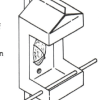
Bird Feeder
Source Institutions
In this outdoor activity, learners construct bird feeders and set them up at to investigate bird behavior for one or two weeks. Multiple feeder designs are suggested.

Crew Strength Training
Source Institutions
In this activity, learners will train to develop upper and lower body strength in their muscles and bones by performing body-weight squats and push-ups.
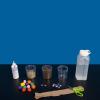
Make a Friend from Soil and Seeds
Source Institutions
Learners assemble a figure from a nylon stocking or sock stuffed with soil and seeds. The ends of the nylons inside the jar absorb water, which feeds the grass seeds.
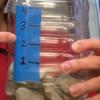
Homemade Rain Gauge
Source Institutions
In this activity, learners will build rainwater collectors to practice meteorology in their own backyard. Collect and analyze data to determine how much rainfall you get in a set period of time.
What Does Life Need to Live?
Source Institutions
In this astrobiology activity (on page 11 of the PDF), learners consider what organisms need in order to live (water, nutrients, and energy).
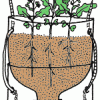
TerrAqua Investigation Column: What is the Land-Water Connection?
Source Institutions
In this investigation, learners plant seeds in a 2-liter bottle filled with soil that is connected to a water source below. Over the next few weeks, learners observe how the plants grow.
Building a Community From the Ground Up
Source Institutions
In this activity, a group of learners work collaboratively to design and construct a paper model showing the evolution of an environment through multiple stages, from prehistory through the modern cit

Using a Simple Astrolabe
Source Institutions
In this activity, learners use an astrolabe to measure the altitude of objects. Learners will first practice taking measurements by measuring the altitude of trees and buildings.

Estuaries
Source Institutions
An estuary is a body of water that is created when freshwater from rivers and streams flows into the saltwater of an ocean.
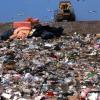
Landfill in a Bottle
Source Institutions
In this activity, learners discover how landfills affect the natural environment.

Mighty Seeds
Source Institutions
In this biology experiment, learners plant soybean seeds in plaster of Paris, witnessing firsthand the mighty power and ability of plants to grow in adverse conditions.
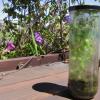
The Self-Watering Terrarium
Source Institutions
In this biology/ecology activity, learners construct a terrarium out of a tennis ball container. This terrarium is unique because it never has to be watered.

Measure the Pressure II: The "Dry" Barometer
Source Institutions
In this activity, learners use simple items to construct a device for indicating air pressure changes.
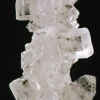
Sugar/Salt Crystals
Source Institutions
In this chemistry activity (page 1 of the PDF), learners will observe a physical change.

Bendy Bones
Source Institutions
In this activity (on pages 19-24 of PDF), learners soak chicken bones or eggshells in vinegar for several days.

Fruit Fly Trap
Source Institutions
Build a fruit fly trap out of a 2-liter plastic bottle and some rotten fruit! Fruit flies are easy to catch in warm weather. Once you catch some, you will be able to see their life cycle up-close.
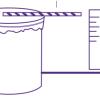
Weather Forecasting
Source Institutions
This activity (on page 2 of the PDF under SciGirls Activity: Forecasting) is a full inquiry investigation into meteorology and forecasting.

Tree-mendous Plots
Source Institutions
In this math lesson, learners record and graph plant growth and interpret data. Learners plant seeds, and once the seeds sprout, record the change in height of the plants for several days.
